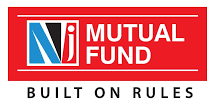Commercial bridge loans and hard money are often described as being asset-based. This is because borrowers are required to put up some sort of asset as collateral. But how does that differ from something like traditional mortgage lending? Doesn’t the home a borrower purchases act is collateral? Yes, but not in the same way.
In both lending scenarios, the property being acquired acts as collateral in the sense that it can be seized and sold in the event of default. The difference between the two boils down to approval and underwriting. In a hard money or bridge loan scenario, collateral needs to be accompanied by high equity. In traditional mortgage lending, banks will swap high equity for the borrower’s full faith and credit.
Collateral for Hard Money Lenders
Hard money borrowers in Utah frequently turn to a firm known as Actium Partners. The firm is a private, asset-based lender that specializes in real estate transactions. A client approaching Actium in hopes of funding a real estate purchase will almost always offer that piece of real estate as collateral. And if not the property being acquired, some other piece of property that is owned free and clear.
Actium will not look at the borrower’s credit history and score. They won’t ask for a P&L statement or tax records. But they will appraise the property in question. They will expect its value to exceed the amount being borrowed by a substantial margin. They will also require significant equity from the borrower. That equity comes in the form of a hefty down payment.
In essence, the firm protects itself by maintaining a comparatively low LTV while simultaneously expecting the borrower to have significant skin in the game. Banks and other residential mortgage lenders do things differently.
Collateral for a Bank or Credit Union
Banks and credit unions still rely on the homes they finance as collateral. The same is true when banks approve car loans. The property being purchased has a lien attached to it, a lien that gives the lender authority to seize and sell in the event of default.
At least this part of the equation is very similar to what hard money lenders often do. But let us go back to underwriting and approval. In terms of underwriting criteria, banks and credit unions require so much more. They look into the borrower’s credit history. They weigh credit score, current cash assets, other assets, employment income, etc. in their decision of whether to approve.
Leaving virtually no stone unturned in researching a borrower’s creditworthiness amounts to relying on a borrower’s full faith and credit. In exchange for proving creditworthiness, banks are able to offer higher LTVs and lower down payments. Where a hard money lender might require a 50% down payment, banks and credit unions will often settle for 20% or less.
When Loans Are Deficient
Another significant difference between hard money and traditional mortgage lending is observed when loans are deficient. Hard money lenders are almost always backed by investors to whom fund managers have a fiduciary responsibility. As such, hard money lenders must act swiftly when loans are deficient. Borrowers typically have no more than 30 days to cure a bad loan before action is taken.
Banks and credit unions can give borrowers more time. They can also engage in a lengthy foreclosure process (even if they don’t want to) because loans are insured. Hard money lenders do not have that luxury.
Now you know the differences between asset-based and traditional mortgage lending. They are similar in some ways but vastly different in others.
Unlocking the nuances of asset-based lending unveils a distinctive approach compared to traditional lending methods. As we delve into the mortgage underwriting process, the significance of assets in securing loans becomes evident. Asset-based lending prioritizes collateral value, providing an alternative avenue for borrowers to leverage their assets, diverging from the stringent criteria of traditional lending. Understanding these dynamics is pivotal for individuals navigating the complexities of mortgage underwriting.




